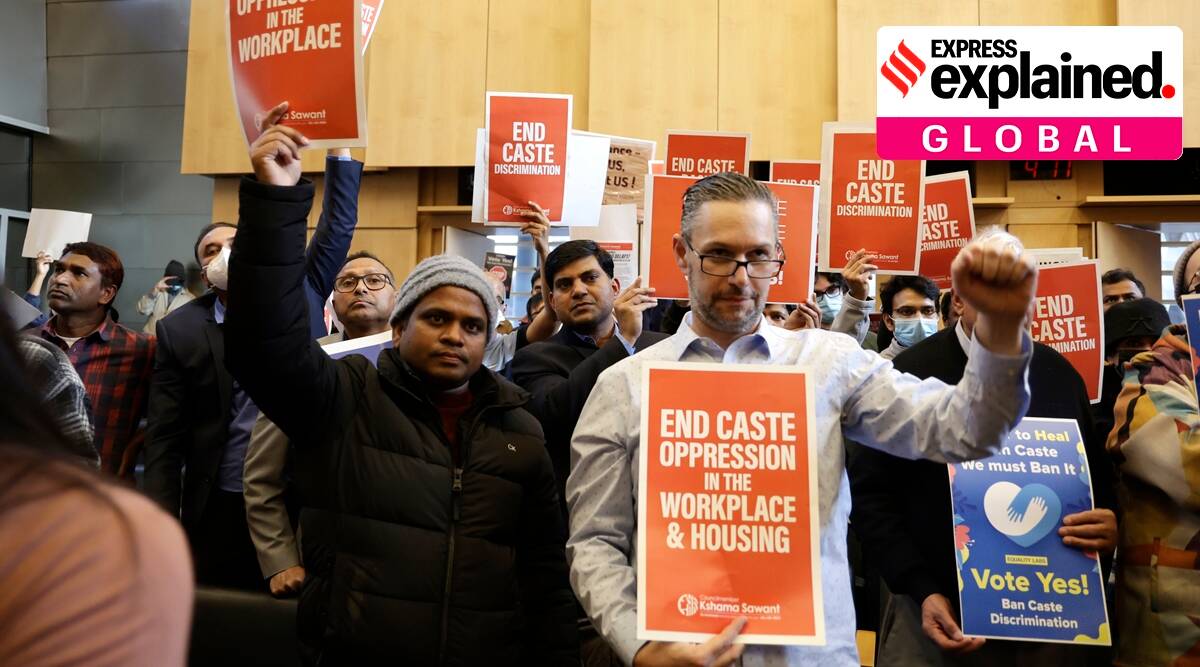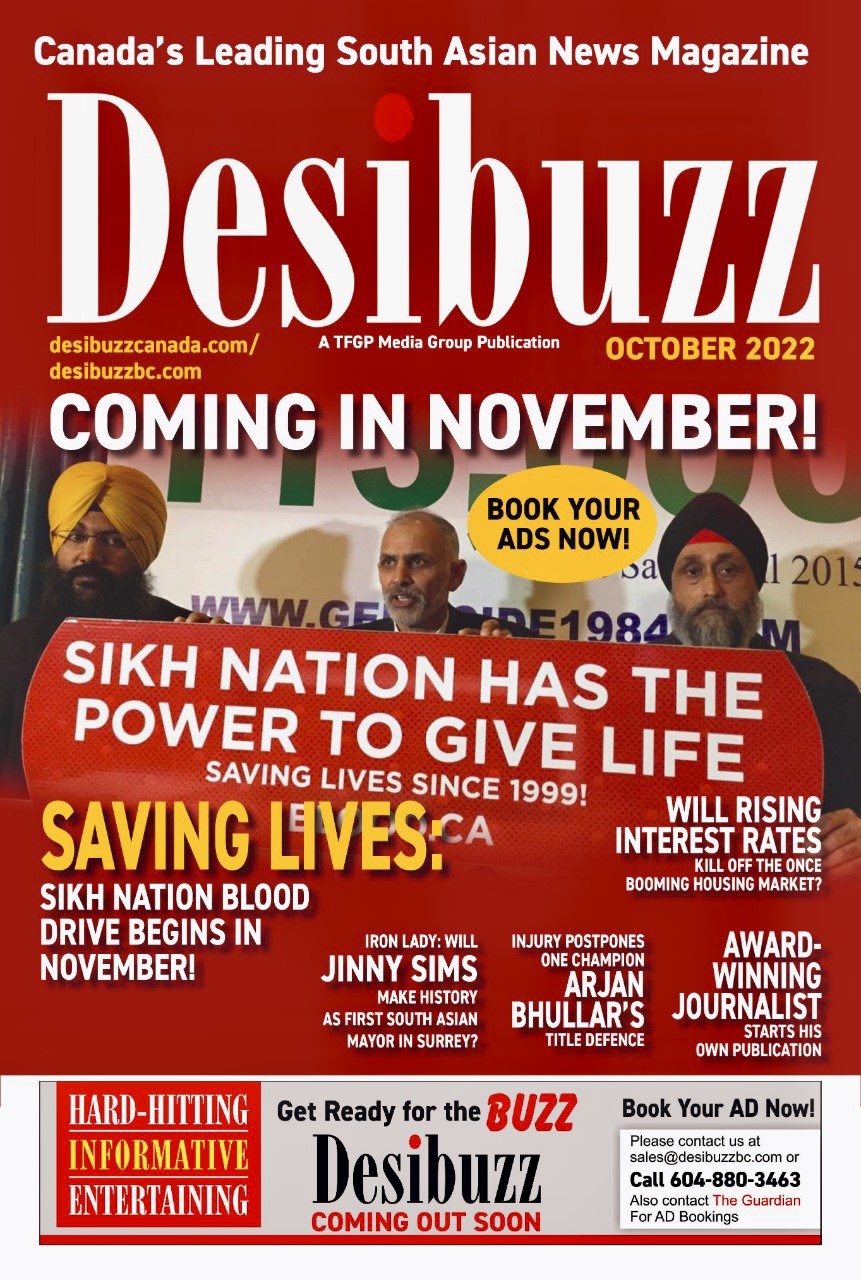DESIBUZZCanada
Events Listings
Dummy Post

International Day Of Yoga To Be Virtually Celebrated Saturday At 4pm

CANCELLED: Coronavirus Fears Kills Surrey’s Vaisakhi Day Parade

ADVERTISE WITH US: DESIBUZZCanada Is The Most Read South Asian Publication Online

SURREY LIBRARIES: Get Technology Help At Surrey Libraries

WALLY OPPAL: Surrey Police Transition Update On Feb. 26

GONE ARE THE DAYS - Feature Documentary Trailer

Technology Help At Surrey Libraries

Birding Walks

Plea Poetry/short Story : Youth Contest

International Folk Dancing Drop-in Sessions
THE CASTE DILEMMA: Imported Caste In Indian Diaspora Is An Injurious Inheritance
- March 5, 2023

India's caste system is among the world's oldest forms of surviving social stratification.
By Zile Singh
For centuries, caste has dictated almost every aspect of Hindu religious and social life, with each group occupying a specific place in this complex hierarchy.
The system which divides Hindus into rigid hierarchical groups based on their birth, karma (work) and caste dharmais generally accepted to be more than 3,000 years old. The caste system divides Hindus into four main categories - Brahmins, Kshatriyas, Vaishyas and the Shudras. Many believe that the groups originated from Brahma, the Hindu God of creation. At the top of the hierarchy were the Brahmins who were mainly teachers and intellectuals and are believed to have come from Brahma's head. Then came the Kshatriyas, or the warriors and rulers, supposedly from his arms. The third slot went to the Vaishyas, or the traders, farmers and cattle breeders who were created from his thighs. At the bottom of the heap were the Shudras, who came from Brahma's feet and did all the menial jobs for the three higher castes. Outside of these four groups were the Dassas (Ati Shudras) or the untouchables.Now popularly known as Dalits. From where they were born is not known. Today, to any sane person, it could be a joke out of a joke that human beings were born from head, arms,thighs, and feet.

The main castes were further divided into about 3,000 castes and 25,000 sub-castes, each based on their specific occupations and geographical locations.
Manusmriti, widely regarded to be the most important and authoritative book on Hindu law and dating back to at least 300 years before Christ was born, "acknowledges and justifies the caste system as the basis of order and regularity of society".
The Universe comprises human beings, sub-human beings, and non-human beings. Men, animals, birds, insects, trees, plants, rivers, mountains, seas, and skies were revered and worshiped by the Hindus, but the untouchables remained untouched. The untouchables were in fact ‘unique beings, inferior to all things. Untouchables also, by remaining in their own ghettoes at a social distance, created dozens of sub-castes never to mix among themselves. Theirs’ was a subsistence behind iron curtains.
Today, the world has become a global village sans border. The South AsianDiaspora of all hues, whereverthey migrated have carried their caste with them, mostly attached to their names. Though, in the countries of their adoption, they are not employed in professions they were legally bound to profess and reside in places earmarked for them back home. A number of upper castes are doing the jobs of the shudras/ untouchables and vice versa in their adopted lands. Thanks to the local system where all jobs are treated with equal respect. Thus, professionally the caste system has been taken care of in the western world but mentally and psychologically the caste is stuck at the back of their heads. What to talk of the oppressors, the oppressed also have not got the guts to burry the hatchet. To an untouchable, caste is hanging on his head like a Damocles’ sword. On the transit or at his workplace, he is afraid that someone may not ask his caste. It happens usually. Both categories are casting their minds backward. Now is the time to think ahead. Instead of nipping the evil in the bud, they hone the evil of caste in one form of the other. Intra-caste distanceis kept carefully in personal and family affairs.In a multicultural country like Canada, equal opportunities are open to all with equal protection by law. People are beating their own drums in the form of separate caste-based religious places. It is clear that people are more fundamentalists on caste-lines than religious on humanitarian grounds. Spirituality can claim that ‘all are equal’; religion cannot. Preaching and practice do not match.

In the Indian context, some say the caste system would have lost its stronghold by now if the fires were not regularly fanned by politicians.At elections, many caste groups still vote as a block and are wooed by politicians looking for electoral gains. There are laws on equality, prohibiting untouchability and preventing atrocitiesagainst Dalits, still the atrocious acts are rampant. As per the National Crime Records Bureau (NCRB) data of 2019, 10 Dalit women and minor girls are raped in India every day.
A caste-based discriminationcase in California has gone to aState Court in the United States. It is uncertain whether ‘caste’ like ‘race’ wouldmake it into U.S. statutes. A Billto address caste-based discrimination was defeated in the British Parliament in 2018. The strong Hindu, Sikh and Jain lobby stood against the Bill. Let us watch the outcome of the ‘boundlessly idealistic law’ passed bythe Seattle City Council on February 21, 2023.It is the first of its kind outside India. Will the passage of such Bills elsewhere jeopardise the hegemony of the Hindus and the Sikhs? Sikh scriptures, no doubt, condemn caste. In practice, it is apparent through songs and matrimonial. When there are no cases of caste-based discrimination prevalent in the community, why then the Hindu lobby is afraid of such laws? Warily, caste matters even to the lower castes! Caste is a milking cow for the creamy layer of Dalits in India.
Cases of discrimination can be handled relying on emerging case-law developed by courts and tribunals in western countries. Matters need to be handled with due prudence keeping in view the evolving dynamic and diverse culture in Canada. There is need to mobilise communities to address the issue in open forums. Let the upper castes take a lead. It will be in the interest of both and will put a break on the implicitly not-so-good image of the Diaspora. Despite many good deeds, the Diaspora in Canada is already under lens on account of drugs, murders, knifing and domestic violence. Let us change the centuries-old caste conscious mindset before we become an object of bullying. Let us realise “Vasudhev Kutambkam”.
Article 1 of the United Nations Universal Declaration on Human Rights, 1948 states, “All human beings are born free and equal in dignity and rights. They are endowed with reason and conscience and should act towards one another in a spirit of brotherhood.”
Dard idhar bhi hai, dard udhar bhi hai.
Jaati ek shaap hai, chahe jidhar bhi hai.
Aao ise khatam karen, hum sab milkar.
Aadmi se aadmi kab tak rahega darkar?
Zile Singh is a well respected Columnist, Writer and a Vipassana Meditater. He has a Post-Graduate Diploma in Human Rights. He can be reached at zsnirwal@yahoo.ca

















